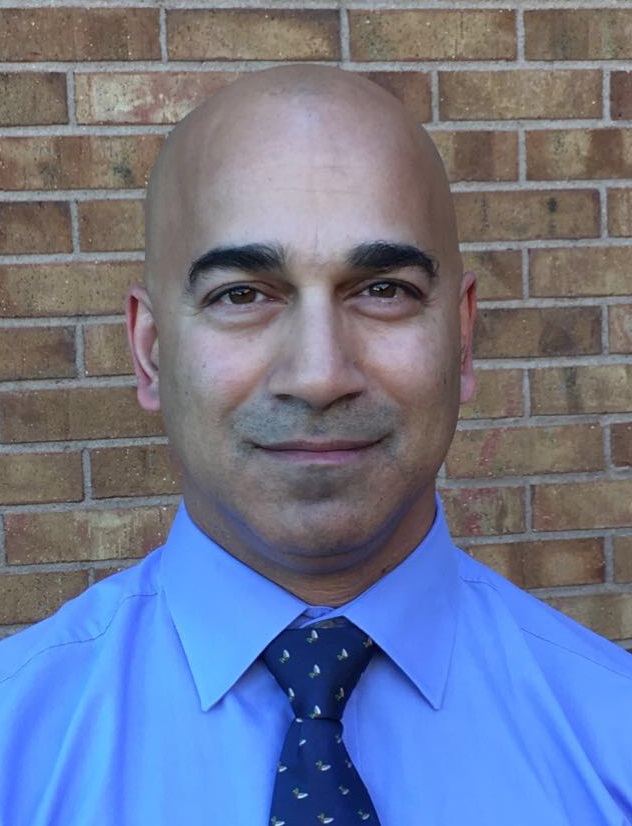The Art of Business
February 7, 2017
Jaston Williams discusses early entrepreneurship as Texas Tech plumbs possibilities for entrepreneurial outreach group.
 Photography by Brenda Ladd
Photography by Brenda Ladd
Neither of them knew that an evening of fun would turn into a 35-year franchise.
One night in Austin, Texas Tech Alumnus Jaston Williams and his buddy, Joe Sears, created a sketch based on a Ben Sargent cartoon. They set it in a West Texas local radio station, and entertained a party happening downstairs from Williams' apartment with what he called a wild, raucous evening of comedy.
That night, the pair gave birth to the characters of Petey Fisk and Bertha Bumiller. They had the crowd in the palms of their hands, and they squeezed out the laughter until everyone hurt. Digging into their Southwestern upbringing and building characters from people they knew and/or were related to in Crosbyton, Texas, and Bartlesville, Oklahoma, Williams and Sears mined their pasts for comedy gold.
That night, Williams recalls, two entrepreneurs also were born.
 Jaston Williams
Jaston Williams
Across the country, universities are addressing the relatively new genre of arts entrepreneurship, said Bob Chanda, senior administrator of special projects at the Talkington College of Visual & Performing Arts. Artists, by the nature of their work, have arguably always been entrepreneurs, he said. However, there is a growing recognition of the need to address this form of entrepreneurship in research and teaching practices in institutions of higher education.
In the past year, the college has made it a priority to bring key faculty members together to explore arts entrepreneurship on campus, he said, as well as help the college to foster artistic and entrepreneurial endeavors, such as Williams' work.
The result was the formation of the Arts Entrepreneurship Working Group, which includes nine faculty members with representatives from the School of Art, the School of Theatre & Dance and the School of Music.
"Entrepreneurship is certainly a big interest of mine, and we've pushed for college involvement in this," Chanda said. "We've made some headway, and we've got some exceptional faculty who are going to be important in setting the tone for how we progress in terms of initiatives and programs. We're very excited to have a new dean who has excelled at creating interdisciplinary relationships and who also is interested in fostering entrepreneurship."
Birth of Creation
"It was a slow gestation, only neither of us realized we were pregnant," Williams recounts of the beginning of the "Greater Tuna" saga. "Joe and I had been really close friends throughout the '70s and done theater in San Antonio mostly. But nothing we did was more theatrical than the friendship. We understood each other really well and came from similar backgrounds. We saw the humor in that upbringing."
The two began creating and writing in earnest. They put a show together and played in front of an 80-seat audience. One night, New York theater critics showed up and requested a special performance. Three days later, they earned glowing praise in Variety.
"When they went back and wrote a rave review in Variety, the world changed forever," he said. "I mean forever. It was that fast. I think the thing that made it work for us was we were both turning 30 at this point. We weren't kids anymore. We were both old enough and knew we had this product, and we knew not to turn it over to just anyone. Somehow, we didn't screw it up. Almost a year to the day of when we opened on our own in Austin, we opened off Broadway. That is just stark-raving crazy to go from an 80 seat-house in Austin in a theatre where we're using wooden boxes as props to a major off-Broadway production with a half-million dollar investment. It was a tough year in New York, but we survived it. We managed more than 500 performances, and then the Kennedy Center called. It was just born."
They were on to something, and they knew it.
The two wanted to keep control of their product, and looked carefully at everyone offering "help." Many offered, but the pair "auditioned" interested parties to make sure the collaboration only improved their original idea. Mark Lamos, a director at Hartford Stage, convinced them to do the split-second quick-changes that added a "wow" factor and garnered even more laughs. At first they resisted the urge to write another play, but eventually they saw a Christmas production would dovetail beautifully into their original "Greater Tuna."
Williams said they kept their circle of contributors small, and worked out problems with the show until their products ran like well-oiled machines. They found representation with the William Morris agency. With razor-sharp wit and finely honed powers of observation he and Sears have made millions laugh at the quirky residents of the fictional West Texas town of Tuna.
Through their careers, the shows have played on and off Broadway, at the Kennedy Center, the Edinburgh International Arts Festival, the Spoleto Festival U.S.A. and all across America. Williams has received Washington D.C.'s Helen Hayes Award nominations for "A Tuna Christmas" and "Red, White and Tuna," as well as the San Francisco Bay Area Critics Award for "Greater Tuna."
Schools of Thought
 Bob Chanda
Bob Chanda
Entrepreneurial activities in the arts always have been part of the programs in the college, Chanda said, though there now is a need to focus those activities and develop a holistic and integrated view of arts entrepreneurship.
Whether it's tooling a piece of haute couture jewelry, creating a smartphone app or booking and promoting a final concert performance, students and faculty are working as entrepreneurs – probably without even recognizing it.
While many individual artists understand how to think of themselves or their works as a business proposition, it's only fairly recently that higher education has begun the process of connecting everyone with the overarching idea. However, the idea is spreading quickly. About 100 college and university programs around the country currently address arts entrepreneurship in some way, Chanda said.
That's why Chanda brought in two leaders in the field, one from Southern Methodist University and one from University of Colorado at Boulder, to share perspectives with the working group and talk about the different programs those two universities have formed.
The concept is so new, though, that scholars in the field still find it hard to define the "Arts Entrepreneurship." The working group hopes to make decisions for itself on these topics, then attempt to connect individuals and build success in a more thoughtful, collaborative way.
Ultimately, Chanda said it will take a form specific to college faculty personalities and programs that will be flexible to growth and new ideas when it comes to materials for teaching successful entrepreneurship in the arts programs as well as fostering the entrepreneurial spirit in the arts on campus.
The working group currently is led by Linda Donahue, associate chairwoman and head of the arts administration in the School of Theatre & Dance, and Chris Smith, associate professor and chairman of musicology in the School of Music.
"Right now, the working group is creating proposals for the dean and identifying existing entrepreneurial activities among faculty," he said. "Part of what we want to do is identify what faculty are already doing on their own and find ways to define, integrate and support their efforts. Our new Arts Initiative in Medicine (AIM) is arguably a form of entrepreneurship. It's a priority and it's gotten a lot of support from upper administration. AIM is designed to encourage research and practice collaborations between faculty from our college and the Texas Tech University Health Sciences Center centering on arts and medicine. The potential for creating unexpected partnerships leading to unique solutions to problems give this initiative a decidedly entrepreneurial context. I was able to talk to the University Innovation Fellows and suggest to them that, as artists, we are entrepreneurs too. The challenge for us is to frame what we do as entrepreneurial and encourage the perceptions that our efforts are as valid as any other effort on campus."
Though entrepreneurship wasn't addressed when Williams went to Texas Tech, he said he did learn quite a bit about it being around the faculty and students he encountered. He also learned much from trial and error out in the real world.
Along with keeping circles of benefactors and contributors small, Williams said one of the most important things an artistic entrepreneur can do is to be ruthlessly honest about the product he or she is trying to sell or promote.
"If you think that isn't your best shot at something then wait," he said. "Deep down, we know the truth. At some point, if we find ourselves saying 'Someone keeps mentioning this aspect doesn't work, but I believe it does,' no. Get honest. If you have a doubt, question the problem that keeps coming up and deal with it. Those things are not imaginary. Another thing that's very important, when you're trying to raise money. In theatre, we raise small amounts from a lot of people. I understand that. But that is back-breaking work to do it that way. You find your angel, and there are a lot of them out there in the world who do have money and a brain in their head. If you find one person with the money you can trust and work with, go with them. You don't have to spread it around with the world. The fewer involved the better. This is true of all artistic endeavors."
